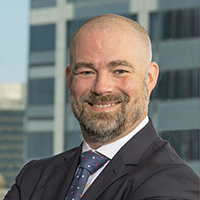
Legal Ethics for New Attorneys
High Profile Motion to Disqualify in Georgia v. Trump Prosecution Serves As Important Reminder Regarding Attorney Obligations Related to Extrajudicial Statements

Media coverage of efforts by the defendants to disqualify the Fulton County District Attorney in the Georgia case against former President Donald Trump provides a stark reminder of the ethical obligations of both criminal and civil practitioners when making extrajudicial statements about ongoing litigation.
While there has been significant focus on salacious allegations of an improper romantic relationship between the Fulton County DA and the lead prosecutor, the motion to disqualify the Fulton County DA alleges a violation of Rule 3.8(g) of the Georgia Rules of Professional Conduct regarding the Special Responsibilities of a Prosecutor: The prosecutor in a criminal case shall “… refrain from making extrajudicial comments that have a substantial likelihood of heightening public condemnation of the accused.”
The alleged violation of this rule stems from comments made by the DA in a speech soon after criticisms about the appointment of the lead prosecutor came to light. (See, Atlanta News First article, which includes a transcription of DA Willis’ speech, at https://www.atlantanewsfirst.com/2024/01/15/read-fulton-county-da-fani-willis-improperrelationship-charges/ ; Georgia v. Trump et al., case number 23SC188947, Superior Court of Fulton County, Georgia.)
In California, the Rules of Professional Conduct regarding trial publicity apply to all attorneys and state that lawyers “shall not make an extrajudicial statement that the lawyer knows . . . will (i) be disseminated by means of public communication and (ii) have a substantial likelihood of materially prejudicing an adjudicative proceeding in the matter.” (Cal. Rules Prof. Conduct, Rule 3.6(a) [emphasis added].) The Rule applies to “extrajudicial statements,” including statements which present “information clearly inadmissible as evidence in the matter for the purpose of proving or disproving a material fact in issue.” (Cal. Prof. Rule of Conduct, Rule 3.6, Comment 1.)
As the United States Supreme Court has address in multiple decisions, the purpose of the court system is to “adjudicate controversies, both criminal and civil, in the calmness and solemnity of the courtroom according to legal procedures,” as opposed to the court of public opinion. (Sheppard v. Maxwell (1966) 384 U.S. 333, 350-351 [emphasis added]; Thiel v. S. Pac. Co., 328 U.S. 217, 220 (1946) [“The American tradition of trial by jury, considered in connection with either criminal or civil proceedings, necessarily contemplates an impartial jury”].)
“Among these ‘legal procedures’ is the requirement that the jury’s verdict be based on evidence received in open court, not from outside sources.” (Sheppard, supra, 384 U.S. at p. 351.) “This objective can be obtained only if publicity created by private litigants is subject to reasonable restrictions.” (Ibid.)
The rule does not deprive attorneys of their First Amendment rights, and provides for the specific exceptions set forth in Rule 3.6(b) (1-7). However, the increased use of social media by attorneys, as well as the public at large, gives rise to difficult decisions for practitioners, particularly those involved in high-profile litigation, whether civil or criminal.
Not only do lawyers face the prospect of State Bar discipline for ill-advised statements, they may also be subject to court orders restricting extra-judicial comments by counsel and their clients. (See, e.g., Doe v. Rose (C.D.Cal. 2016) No. CV-15-07503-MWF-JCx, 2016 U.S.Dist.LEXIS 203529 at *7 [entering “gag order” restricting statement by trial participants where “much of the offending press has been published on blogs and news websites, in addition to more traditional media outlets. A scrupulous juror who has sought actively to avoid television and news media reports on the case may nevertheless be thwarted by a text alert or an unexpected Tweet.”])
While the outcome of the effort to disqualify the prosecutors in Georgia v. Trump et al., has yet to be determined,California attorneys – whether practicing criminal or civil law – must remain cognizant of the restrictions imposed on public statements regarding ongoing litigation.